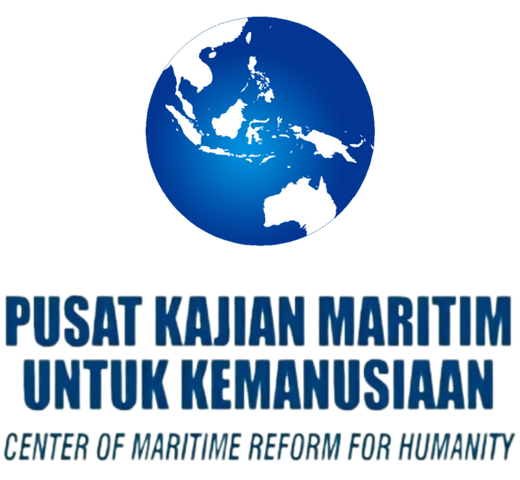
Center of Maritime Reform for Humanity
The Center of Maritime Reform for Humanity or popularly known as Pusat Kajian Maritim untuk Kemanusiaan is an independent think tank and policy advocacy group that supports the Government of Indonesia by providing evidence-based policy making on promoting sustainable and responsible fisheries management that is free from the practices of human trafficking and modern slavery, strengthening small-scale fishing communities’ rights and fish workers overseas.
Vision
Presenting a sustainable and responsible fisheries and labor governance that is free from trafficking in persons and modern slavery through strengthening the rights of small-scale fishing communities and fish workers in Indonesia.
Mission
To achieve this vision, the Center of Maritime Reform for Humanity has a number of missions as follows:
Strengthening active knowledge networks among international, regional, national and local policymakers, scholars and communities to promote evidence-based policymaking
Developing the potential strength and resilience of small-scale fishing communities in an effort to realize sustainable and responsible fisheries governance in Indonesia
Promote fishery resource management practices rooted in local wisdom and customary law.
Values and Principles
Basic Organizational Values
Respect for Human Rights
Awareness, attitudes and actions that prioritize and highly value human rights values.
Democratic
The involvement of constituents (people) who are active in a collective decision-making process and provide equal rights, political equality and people’s participation in exercising control over the results of these decisions.
Gender Justice
All people have the right to a decent life and environment regardless of gender, religion and social status.
Ecological Justice
Emphasizes the importance of public access to the benefits of resource utilization and recognition justice which emphasizes the importance of recognizing the existence of the diversity of ways in which people manage nature.
Intergenerational Justice
All present and future generations are entitled to a quality and healthy environment.
Social brotherhood
Building togetherness and high solidarity, and binding oneself in social work among citizens. All people have the same civil, political, economic, social and cultural rights.
Anti-violence
Awareness, attitudes and actions that reject and oppose the practice of violent demonstrations by individuals, groups, capital and the state.
Diversity
Recognizing human equality in diversity or diversity which is both a reality and a necessity in life in society.
Organizational Principles
Openness
Delivering real information relating to the management of the organization, programs and financial audit results to related parties, whether requested or not.
Self-sufficiency
All parties are expected to support the political and economic self-sufficiency of the community.
Professional
Maintaining public trust in efforts to protect and save the environment, all forms of organizational activities must be in accordance with the interests of the people (victims and their families), and all forms of organizational activities can be held accountable. All parties should work professionally, wholeheartedly, effectively, systematically and still develop a spirit of collectivity.
Exemplary
Leading the people through actions or deeds that can provide inspiration and examples to others, to the people.
Volunteering
Manifested by not making rewards / benefits and / or position / power as goals, except for the sole purpose of empowerment and independence of the people and networks.
